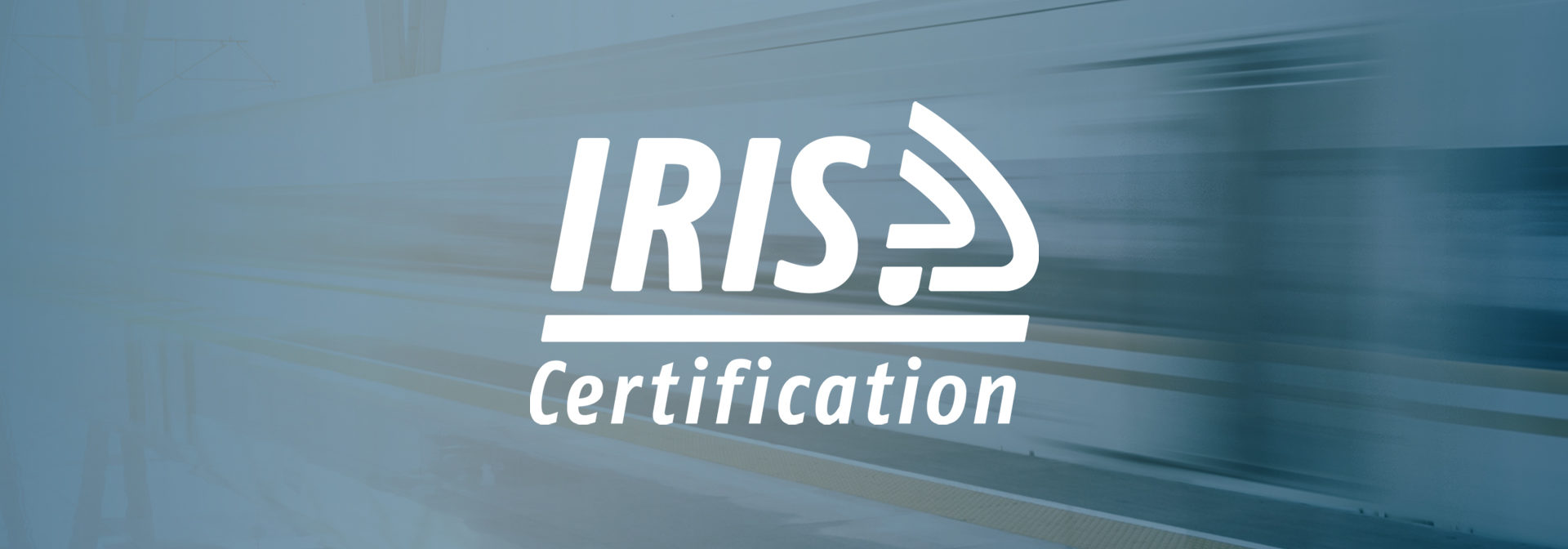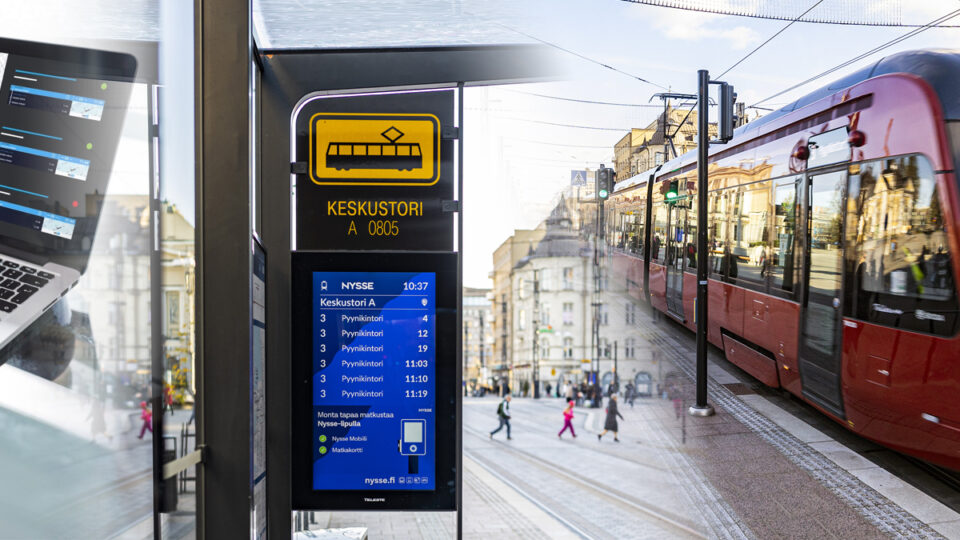
IRIS helps us be a trusted partner
I recently had an encounter with a new colleague who had just joined us and the railway industry. While enjoying a cup of tea together, we discussed the unique industry and customer requirements that are critical for our organization’s success. Our conversation led us to an important topic – our commitment to demonstrating high-quality performance to our customers through the use of external industry-qualified proof. This approach has been a cornerstone of our business strategy since we first ventured into IP-based on-board solutions back in 2007.
In 2009, a Teleste subsidiary accomplished a remarkable feat by becoming the first company in Finland to earn the IRIS certification that is globally recognised as a company’s commitment to excellence and adherence to best practices in the railway industry. The achievement paved way for our other locations and sites providing support and services for rolling stock manufacturers and public transport operators to follow suit.
Clear targets and guidelines for the railway industry
By adhering to the IRIS standard, we have been able to establish ourselves as a trusted and reliable partner to leading players in the railway industry. While there are similarities between quality requirements across various industries, the railway sector has its own unique set of specifications and demands that require attention. The IRIS certification plays an important role in setting and aligning the quality regulations that are specific to the railway industry and following the standard has enabled us to ensure that our performance is on the level that is expected by our customers.
The IRIS standard was originally developed by the Association of the European Railway Industry (UNIFE) in close collaboration with major railway manufacturers and operators. Launched in 2006, the standard was based on the ISO 9001 standard, but it also included additional, railway-specific requirements that enabled providing a comprehensive framework for companies operating in the industry. The standard is intended to help organisations improve their processes and increase efficiency in the field of, for example, design, development, product and service delivery and business management.
Over the years, the IRIS standard has undergone several revisions and updates to reflect the evolving needs of the industry. Today, the IRIS certification scheme comprises the ISO/TS 22163:2017 standard, which outlines the business management system requirements for rail organizations, as well as the IRIS Certification Conformity assessment 2020. ISO/TS 22163:2017 is largely based on ISO 9001:2015, which is a widely recognized quality management system standard used by millions of companies around the world.
Ahead with dedication and drive
For us, IRIS has always provided an excellent platform for continuous improvement of our operations and processes. At first the standard gave us framework and guidelines to establish our processes and following it has later ensured that they have been evaluated in annual audits. As an outcome, we have got an up-to-date view on where to focus next on improving our processes and way of working practices. Based on the evaluation and feedback, we have, for example, readjusted our processes, developed work instructions and created documentation templates.
One of the most valuable insights we have gained is that process reviews and internal audits not only allow us to focus on the specific process being examined but also facilitate cross-functional collaboration within our organization. Having competent internal auditors trained from different processes and functions throughout the organization is essential for promoting knowledge sharing across functional boundaries. By developing training, we have also been able to provide our teams with up-to-date information on advancements and changes.
Another significant takeaway from our IRIS journey has been recognizing that staying on top of all processes requires dedication and commitment from the process owners. They are the foremost experts in their respective processes, and their knowledge, understanding, and authority to maintain and enhance them are critical to our success. Being a process owner should not be an additional task for anyone. Instead, it should be closely linked to existing roles within the organization that already have the responsibility and authority over the process in their everyday operations.
Improving customer satisfaction
To continuously improve, it is not enough to have the processes defined and taken into practice, instead, you also need to have performance monitoring in place. The IRIS standard itself includes a set of KPI’s (Key Performance Indicators) that are designed to help the organization to monitor and measure the performance of the processes, and we have also and defined own KPIs to measure our performance further.
From my experience, a KPI dashboard is a valuable tool not only for internal follow-up but also when communicating with the customers and stakeholders about process specific targets and how your performance and delivery capability is in-line with them. Based on the KPIs you can evaluate whether the steps taken to develop a process to the next level have been effective or whether additional actions are needed to keep you on the right path. Setting your KPIs on a right level also ensures that once you reach them, you can be certain that your KPI for customer satisfaction will also reach the green level!
Setting new goals to reach
What is in my opinion cleverly built into the IRIS certification are the three qualification levels: bronze, silver, and gold. It is not that you either have or don’t have the IRIS qualification. The qualification levels provide a framework for organizations to demonstrate their commitment to quality and continuous improvement. The levels also provide a clear path to progress from first qualification to the highest level of performance in the industry. For us it has been rewarding to see how the work done has paid off, and we have been able to improve our scoring.
The standard itself is also evolving as are the customer expectations and the railway industry requirements are further developing. The next revision of the ISO/TS 22163 standard is expected to be published soon. For us, like also for all the other IRIS certified organizations, this will mean an extra attention firstly to updating our knowledge about the new standard requirements and secondly to putting those into practice into our processes and daily operations.
IRIS is all about continuous improvement – you can always improve and become better. That’s also the driving force of our industry, once you hop on this moving train it can be an exciting live long journey!
To my new colleague – welcome to the fascinating world of railways! Keep an open mind, ask questions, and have courage to challenge our thinking. Taking a moment to find out where we could improve or do something in a different way often opens you a door to new opportunities. Sometimes having a cup of tea with your colleague can be just what you need to find that door!
Pirkko Korpi
Pirkko Korpi
I’m Director of Marketing and Business Development for Teleste’s Video Security and Information business unit. I have a passion for continuous improvement of business processes and collaboration across boundaries. See my LinkedIn for more information.



